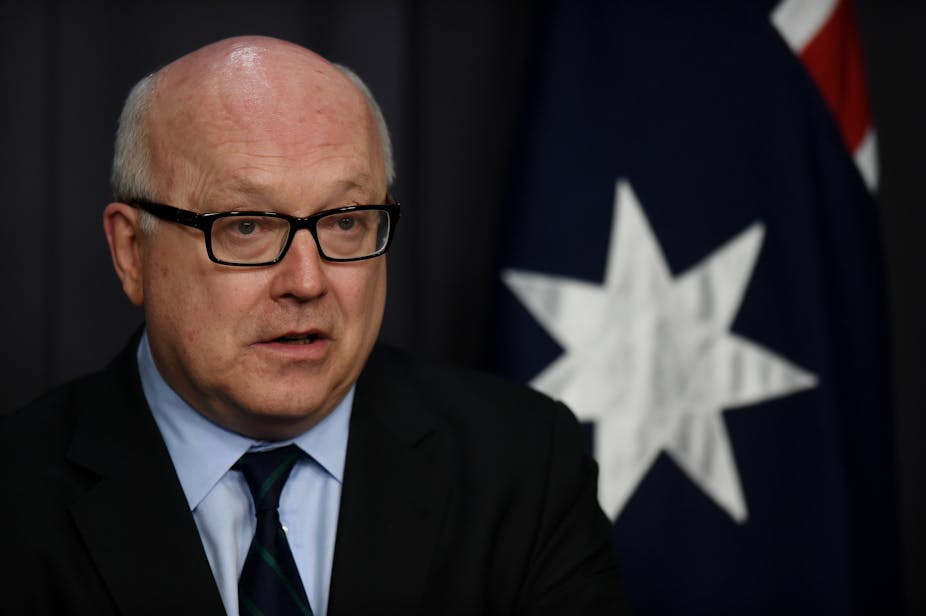The government has accommodated Muslim leaders’ requests that sunset clauses be retained for key parts of its anti-terrorism legislation and will include a specific ban on the use of torture.
Instead of proceeding with the proposed scrapping of the sunset provisions for preventative detention and control orders, which expire at the end of next year, they will be extended to 2025.
Attorney-General George Brandis announced today that the government had heeded the view heard in the extensive consultations with Muslim leaders that removing the sunset clauses would “send a bad message”.
There will also be a decade-long sunset provision on the new offence of visiting a proscribed area. This would not weaken the legislation, Brandis told a joint news conference with the new head of ASIO, Duncan Lewis.
The government has accommodated concerns that legal immunity for ASIO officers from prosecution when they engage in certain undercover activities could sanction torture.
Brandis said there was no way torture could be allowed under the legislation, but the government will write in a specific prohibition to reassure critics. The concern about torture was a point raised by Liberal Democrat Senator David Leyonhjelm.
“I don’t want the discussion of this important issue to be diverted by an issue that is effectively a red herring,” Brandis said.
Brandis again rejected claims that the offence banning visits to proscribed areas would reverse the onus of proof. People won’t be legally allowed to go to areas named by the foreign minister, but a defence available to them would be that they had a justifiable reason, for example a humanitarian mission.
One tranche of anti-terrorism legislation is before Parliament. The foreign fighters bill will be introduced on Wednesday. A third set including the mandated retention of telecommunications metadata is expected to follow within months.

